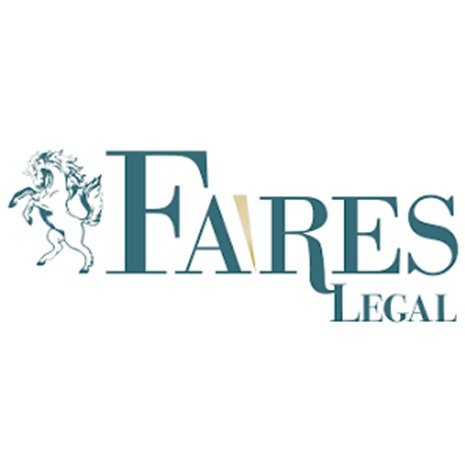Best Lawyers in Libya
Share your needs with us, get contacted by law firms.
Free. Takes 2 min.
Or refine your search by selecting a city:
List of the best lawyers in Libya
Libya Legal Questions answered by Lawyers
Browse our 2 legal questions in Libya and read the lawyer answers, or ask your own questions for free.
- Foreign Ownership Rights for Off-Plan Properties under Libyan Law
- Could you please advise on the legal process and requirements for a foreign investor (non-Libyan national/company) to acquire full ownership rights (title deed/land registry entry) over off-plan real estate developments (properties under construction) in Benghazi, Libya?
-
Lawyer answer by Bushnaf & Associates LLP
Thank you for your question. With regard to the acquisition of off-plan real estate in Benghazi by a foreign (non-Libyan) investor, it is important to clarify that, as a general rule under Libyan law, foreign individuals and foreign companies are...
Read full answer - Pension benefits
- My mum has worked in Libya and has contributed to social security in one company For about 34 years. She is now 58 years old. She wants to go on retirement to her country. She needs a lawyer to guide her on the process. Thanks
-
Lawyer answer by Tamkeen Firm
This is possible depending on the nationality, visa and residency status during the period, and the documentation related to payments made to Social Security Fund. Please share with us further details in order to assess the matter and advise you...
Read full answer
About hiring a lawyer in Libya
In Libya, hiring a lawyer follows a fairly streamlined process. First, you should identify the type of lawyer you need based on your specific legal needs. Some lawyers specialize in family law, others in business law, criminal law, or personal injury cases. Once you identify the type of lawyer, you can do some research or use personal recommendations to find one. Before hiring, it's recommended to meet in person with the lawyer to discuss your case, their expertise, and fees. Once both parties agree on the terms, a legal contract is signed, defining the nature of the relationship and the agreed-upon costs.
Why You May Need a Lawyer
There are numerous situations where you might require legal help in Libya. Such scenarios may include, but are not limited to, disputes over property, family law matters like divorce or child custody, starting a new business, criminal charges, personal injury cases, or resolving contractual disputes. Lawyers can also be of significant assistance in navigating the complexities of Libyan immigration law. Their knowledge and expertise enable them to guide clients effectively through the legal complexities that they might not be able to handle independently.
Local Laws Overview
Libyan Law is largely influenced by Islamic law, French law, and Italian law. It covers a broad range of areas including civil law, criminal law, constitutional law, administrative law, tax law, business law, and more. It is important to note that the legal system in Libya is undergoing some major transformations due to political changes, which can make the situation challenging to navigate without expert help. The country also adheres to international human rights law, although its implementation is sometimes inconsistent. Understanding these dynamics is crucial in the world of legal practice in Libya.
Frequently Asked Questions
1. How do I find a reliable lawyer in Libya?
Seek recommendations from friends or colleagues, or use credible online directories of law firms in Libya. Always verify their credentials and track record before hiring.
2. How much will a lawyer cost in Libya?
Costs vary depending on the complexity of your case and the lawyer's expertise and reputation. It's always wise to discuss fees upfront before making a decision.
3. Which languages are spoken by lawyers in Libya?
Most lawyers in Libya are fluent in Arabic, as it is the official language. However, many also speak English, French or Italian due to the country's colonial history.
4. Can I represent myself in a Libyan court?
Yes, but it is not generally recommended due to the complexities of Libyan law. It's advisable to have a lawyer to guide you.
5. How long does a court case usually take in Libya?
The duration of court cases can differ greatly, depending on the nature of the case, the court's workload, and several other factors. A lawyer can give you a better estimate based on your situation.
6. How is the legal profession regulated in Libya?
Legal practice in Libya is regulated by the Libyan Bar Association, which handles issues of professionalism, ethics, and qualifications.
7. Do Libyan lawyers follow a code of ethics?
Yes, all lawyers practicing in Libya are expected to follow a specified code of ethics and professional conduct defined by the Libyan Bar Association.
8. Can Libyan lawyers practice internationally?
Libyan lawyers can practice international law, but their ability to act in foreign jurisdictions depends on the laws and regulations of those particular regions.
9. How will I know if a lawyer is competent to handle my case?
A competent lawyer should have expertise in the area that your case falls into, a strong track record, and good reviews from past clients. Don't hesitate to ask about their experience and qualifications during the consultation phase.
10. Can I change my lawyer if I am not satisfied?
Yes, you can change your lawyer if you are not satisfied with their services. However, you may need to pay any remaining fees for the work they have completed thus far.
Additional Resources
There are several bodies that can be of help to those seeking legal advice in Libya. The Libyan Bar Association can provide assistance on matters related to the practice of law, including how to find a lawyer. The Ministry of Justice is another resource for understanding the basics of Libyan law, and there are various non-governmental and community organizations that offer legal advice on specific topics or for specific communities.
Next Steps
If you need legal assistance in Libya, the first step is to identify the type of lawyer that will best serve your needs. Remember to check their qualifications, expertise, and track record. Once you hire a lawyer, maintain open and regular communication to ensure the smooth handling of your case. Always ask questions if you're unsure about any aspect of your case. Legal matters can be complex, and your lawyer is there to help you navigate the process.
Lawzana helps you find the best lawyers and law firms in Libya through a curated and pre-screened list of qualified legal professionals. Our platform offers rankings and detailed profiles of attorneys and law firms, allowing you to compare based on practice areas, experience, and client feedback.
Each profile includes a description of the firm's areas of practice, client reviews, team members and partners, year of establishment, spoken languages, office locations, contact information, social media presence, and any published articles or resources. Most firms on our platform speak English and are experienced in both local and international legal matters.
Get a quote from top-rated law firms in Libya — quickly, securely, and without unnecessary hassle.
Disclaimer:
The information provided on this page is for general informational purposes only and does not constitute legal advice. While we strive to ensure the accuracy and relevance of the content, legal information may change over time, and interpretations of the law can vary. You should always consult with a qualified legal professional for advice specific to your situation.
We disclaim all liability for actions taken or not taken based on the content of this page. If you believe any information is incorrect or outdated, please contact us, and we will review and update it where appropriate.
Refine your search by selecting a practice area.
Accidents & Injuries
Banking & Finance
Bankruptcy & Debt
Business
Civil & Human Rights
Consumer Rights
Corporate & Commercial
Criminal Defense
Employment & Labor
Energy, Environment & ESG
Family
Immigration
Insurance
Intellectual Property
Lawsuits & Disputes
Media, Technology and Telecoms
Notary Services
Private Client
Real Estate
Browse law firms by city in Libya
Refine your search by selecting a city.
































